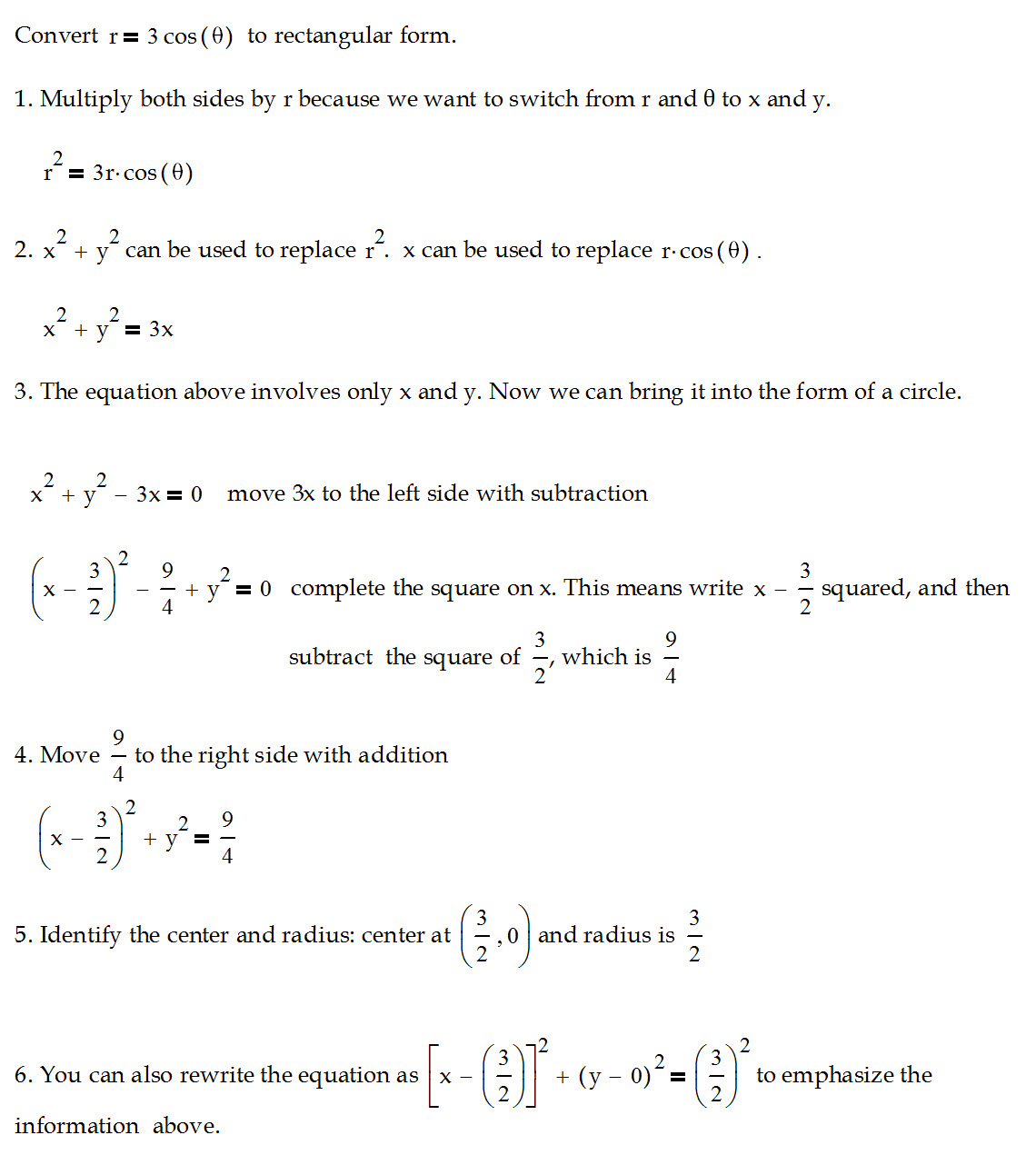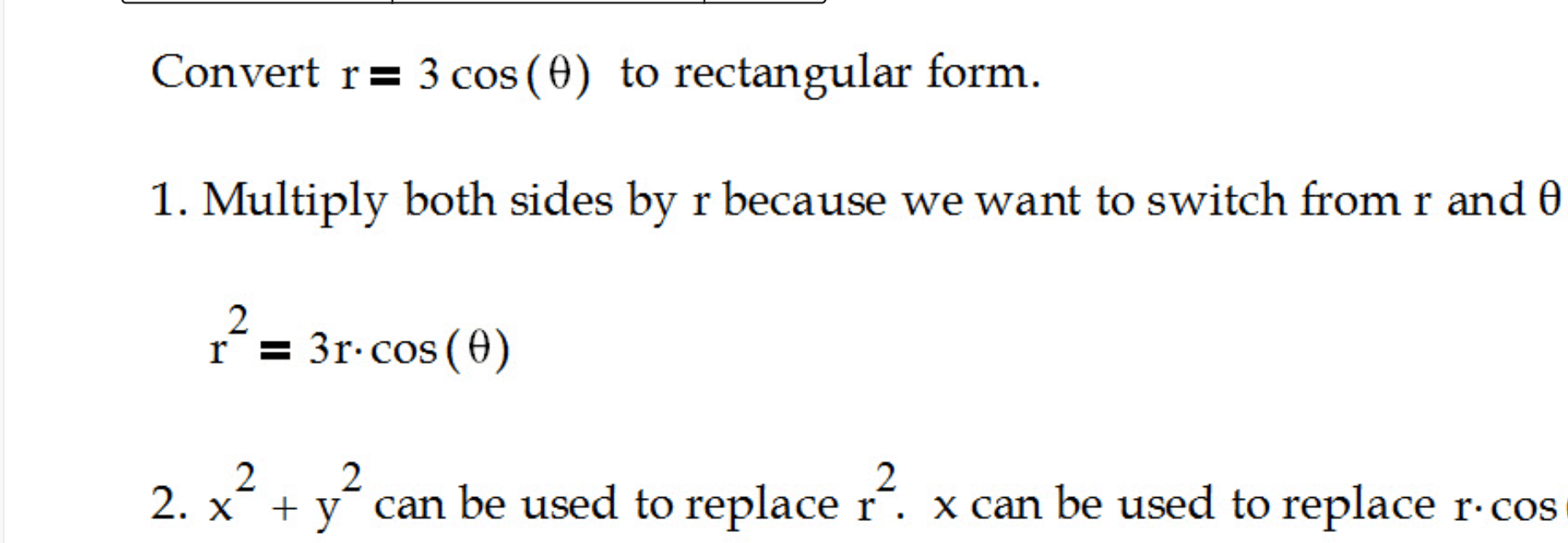We are given the polar equation r = 3cos(θ) and want to convert it to rectangular form.
Step 1: Start with the given polar equation: r = 3cos(θ).
Step 2: Multiply both sides by r to eliminate the fraction: r² = 3r cos(θ).
Step 3: Use the relationship between polar and rectangular coordinates, r cos(θ) = x, to substitute: r² = 3x.
Step 4: Substitute r² with x² + y²: x² + y² = 3x.
Step 5: Rearrange the equation to isolate the x terms: x² – 3x + y² = 0.
Step 6: To complete the square for the x terms, add 9/4 to both sides: x² – 3x + 9/4 = 9/4 – y².
Step 7: Rewrite the left side as a perfect square: (x – 3/2)² = 9/4 – y².
Step 8: Move the y² term to the left side to isolate the equation of the circle: (x – 3/2)² + y² = 9/4.
Conclusion: The rectangular form of the given polar equation is (x – 3/2)² + y² = 9/4. This represents a circle with center (3/2, 0) and radius 3/2.


